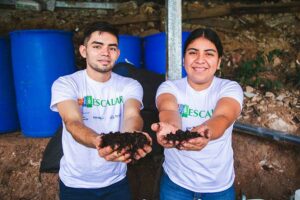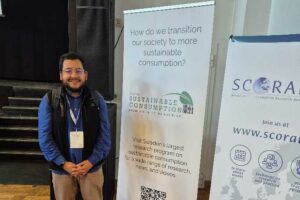Traditions and Culture Strengthened in GANEMOS Master’s Program
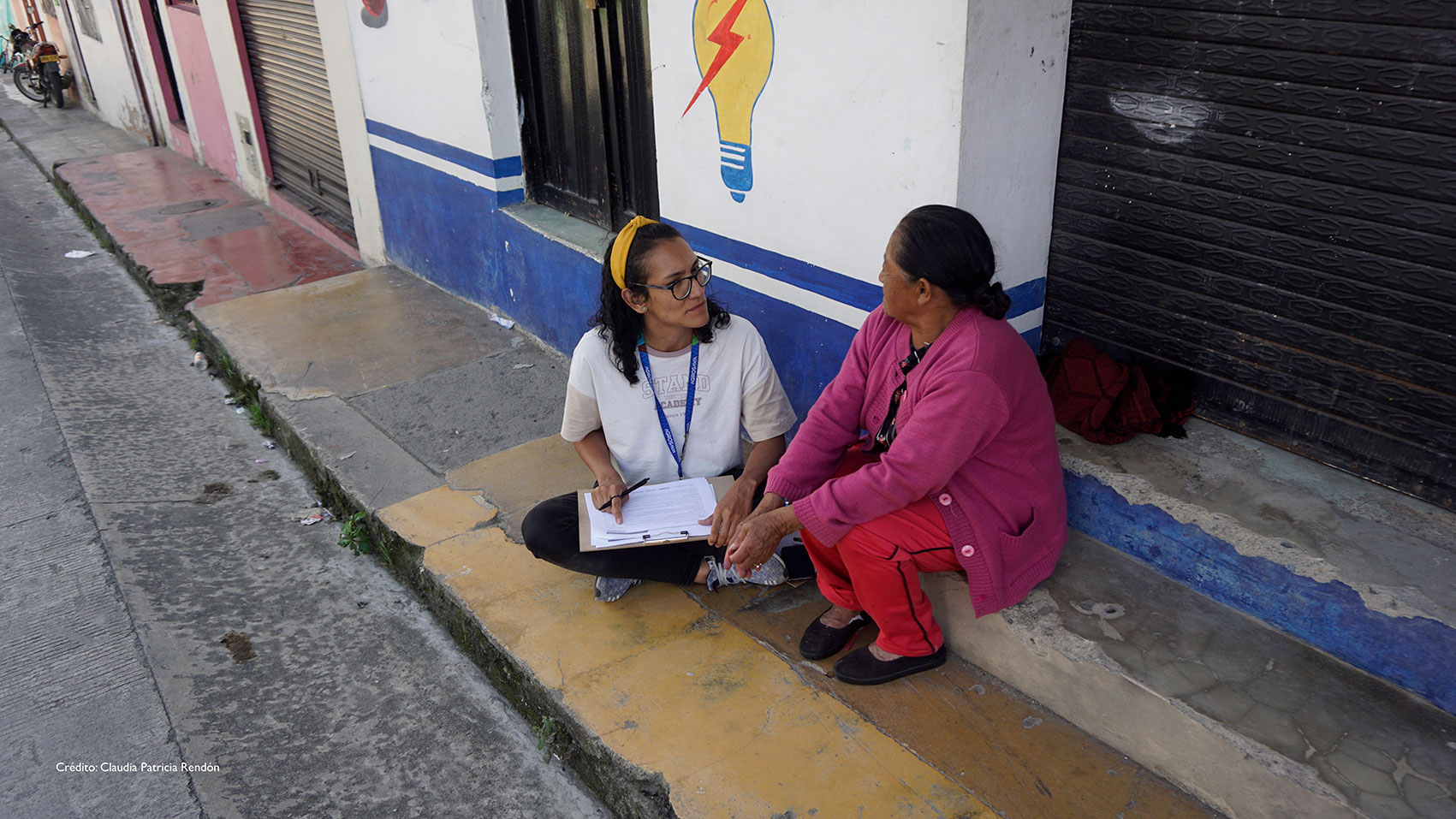
- Claudia Patricia Rendón's research was conducted in the sub-region of Alto Putumayo or Sibundoy Valley, located in southwestern Colombia.
The desire to understand the culinary tradition possessed by local communities in preparing guinea pig (Cavia porcellus) dishes for human consumption was one of the motivations that led Claudia Patricia Rendón to develop her final graduation project (TFG), titled "Identification of the value attributes of guinea pig products from Alto Putumayo, Colombia to develop a communication strategy for consumers."
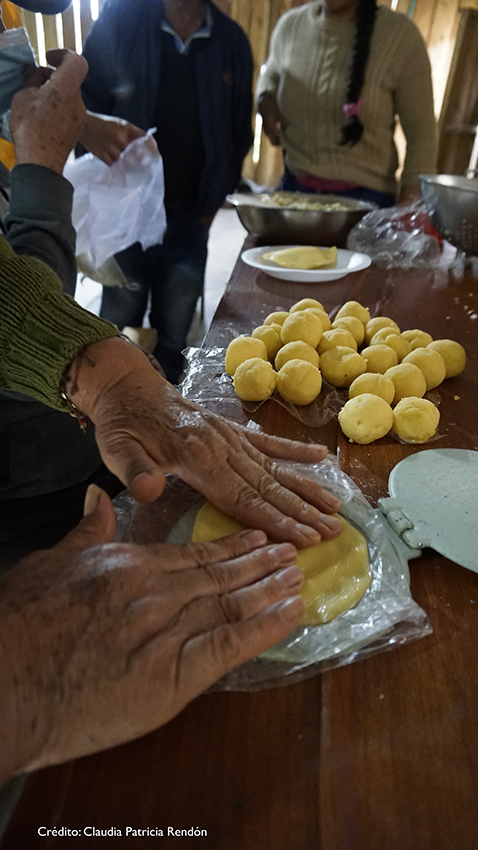
As a student in the fourth cohort of the Master’s program in Agribusiness Management and Sustainable Markets (GANEMOS) at CATIE (Tropical Agricultural Research and Higher Education Center), Rendón conducted this research with the primary advisor Andrea Garay, a lecturer and specialist in sustainable agribusiness from the Environmental Economics and Sustainable Agribusiness Unit (UEAAS/EfD) of the institution.
“Personally, I did not like the taste or appearance of guinea pig dishes, but I was captivated because, for local people, it is a way to show affection,” Rendón said. She added that getting to know some producers motivated her to understand this tradition and help promote other forms of consumption that would allow them to reach more people and multiply the warmth of affection felt in the dish.
As part of the research methodology, Rendón implemented workshops to recognize local gastronomy.
“The cooking workshops were a strategy to diversify the presentation of guinea pig meat and to highlight the biocultural characteristics present in the chagras,” said Rendón.
Additionally, new recipes were created to build recognition and communication strategies that highlight the intrinsic value of guinea pig, food security, and history.
This group activity involved the participation of six enterprises from Ecuador, Mexico, Costa Rica, Peru, and Colombia.
Social and Cultural Importance of Guinea Pig
The guinea pig is a species of social, cultural, and traditional importance in the Andean countries of South America, such as Ecuador, Peru, Bolivia, and Colombia. Dishes prepared with guinea pig are consumed during special celebrations such as Mother's Day, Father's Day, Christmas, baptisms, birthdays, and others. However, its preparations are not limited to food consumption, as it is also part of traditional medicine.
Adriana Escobedo, coordinator of the GANEMOS Master’s program at CATIE, expressed that within the program’s training, it is important to highlight an approach that visualizes social and cultural aspects, and thus, the curriculum includes a competency aimed at this.
Claudia Rendón confirmed this by saying, “I strengthened competencies in the logical way of understanding the contexts of local chains and enabling actions to energize them through the promotion of sustainable agribusinesses.”
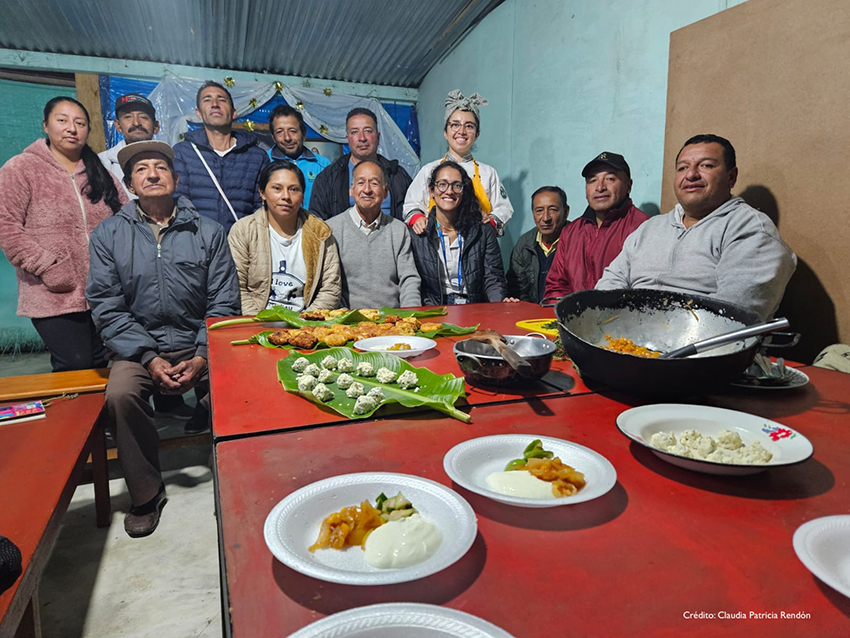
A Holistic Approach
Andrea Garay, reflecting on the aspects to highlight from this academic effort, stated that the focus the student brought to her TFG was holistic.
“She managed to integrate many elements, both of the guinea pig activity and its limitations and opportunities within the production chain, ranging from the behavior of the consumer to the way the product is perceived, incorporating the elements of local tradition and the gastronomic and cultural richness of the southern region of Colombia,” explained Garay.
According to Rendón, the learnings obtained from this academic work include:
- The genuine connection fostered through food preparations and the memories of its consumption for affection and appropriation of new food recipes.
- The opportunity to closely understand the socio-cultural context, traditions, and the generation of connections among people in the area.
- The capacity and management of communities when a trigger is proposed, such as the encounter through food and the connection of ideas that emerged to promote the consumption of guinea pig.
- Finally, the understanding of a production chain that is just beginning to develop in the area and in the country.
The GANEMOS Master’s program has graduated 33 students from Colombia to date, making it, after Costa Rica, which has 37, the country with the most people trained in sustainable agribusiness management by CATIE.
More information about the GANEMOS master’s program can be found at: https://agronegocios.catie.ac.cr
Crédito de la fotografías: Claudia Patricia Rendón
More information:
Adriana Escobedo A.
Academic Coordinator of the GANEMOS master's program
Environmental Economics and Sustainable Agribusiness Unit (UEAAS/EfD)
CATIE
escobedo@catie.ac.cr
+(506) 2558-2075
WhatsApp: +(506) 8598-5189
Andrea Garay
Specialist in Sustainable Agribusiness
Environmental Economics and Sustainable Agribusiness Unit (UEAAS/EfD)
CATIE
andrea.garay@catie.ac.cr
Written by:
Marianela Argüello L.
Communication and Knowledge Management Officer
Environmental Economics and Sustainable Agribusiness Unit (UEAAS/EfD)
CATIE
marguello@catie.ac.cr

